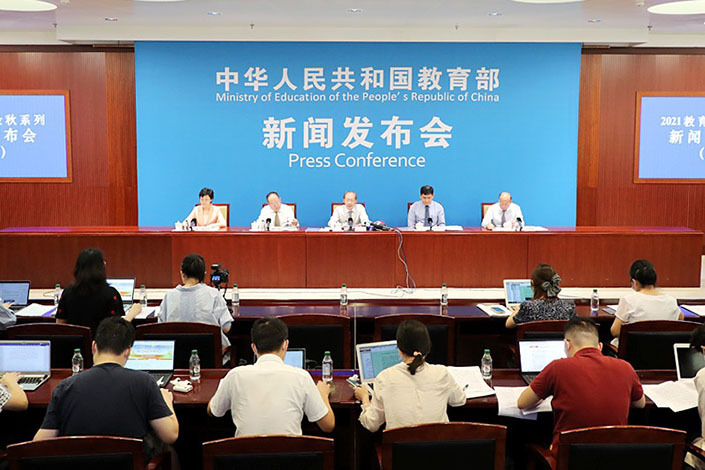Education Authorities Warn of Punishment if National Policies Aren’t Enforced

China’s education authorities have tightened oversight of local governments, schools and educational institutions with a new set of rules to enforce national policies, amid a regulatory storm in the country’s educational system.
The rules came into effect Wednesday.
A document issued by the State Council’s education inspection committee outlines measures to hold entities or individuals accountable if they fail to fulfil their educational duties or violate laws and regulations. The education ministry’s office of national education inspection conducts the day-to-day work of the committee.
The rules come at a time the country has rolled out sweeping changes to education policies aimed at reducing the burden on students from homework and after-school tutoring, known as “double reduction.” And government rules require the after-school tutoring industry to turn existing businesses into nonprofit institutions, bar them from public market financing and prevent the creation of new businesses providing tutoring on school curriculum subjects.
Tian Zuyin, head of the ministry’s office of national education inspection, said at a press conference Wednesday that specific measures on accountability have to be formulated to “add teeth” (link in Chinese) to inspection efforts.
“For a long time, the main reason why education inspection has not been able to give full play to its role is that accountability has not kept pace with it,” he said.
The document said that education inspection committees of governments at all levels should oversee their lower-level government departments, schools and educational institutions, which shall be held accountable if they fail to implement education policies properly, lag behind at completing education tasks or see a decline in the quality of teaching, among other misconducts.
Schools and educational institutions shall also be held accountable if they violate regulations in admissions, teaching, research, and use of teaching materials.
The rules also stipulate those entities can be punished by warnings and administrative penalties, while individuals who have been held accountable for misconduct can face demotions or dismissals, or have their cases transferred to supervisory or judicial organs for further action. Those in charge of private schools or educational institutions can also be barred from working in the industry.
Contact reporter Cai Xuejiao (xuejiaocai@caixin.com) and editor Lu Zhenhua (zhenhualu@caixin.com)
Download our app to receive breaking news alerts and read the news on the go.
Get our weekly free Must-Read newsletter.






